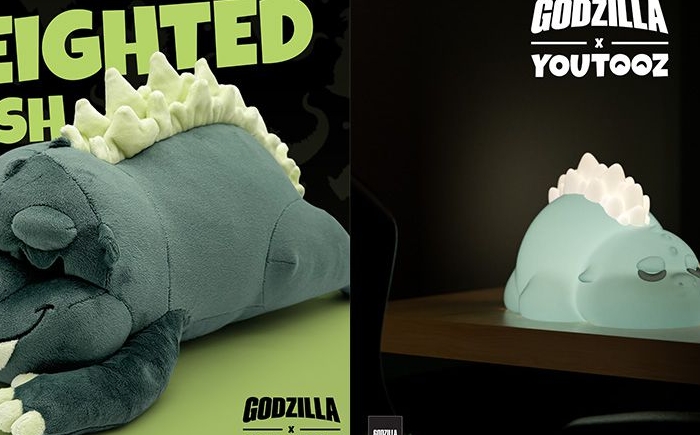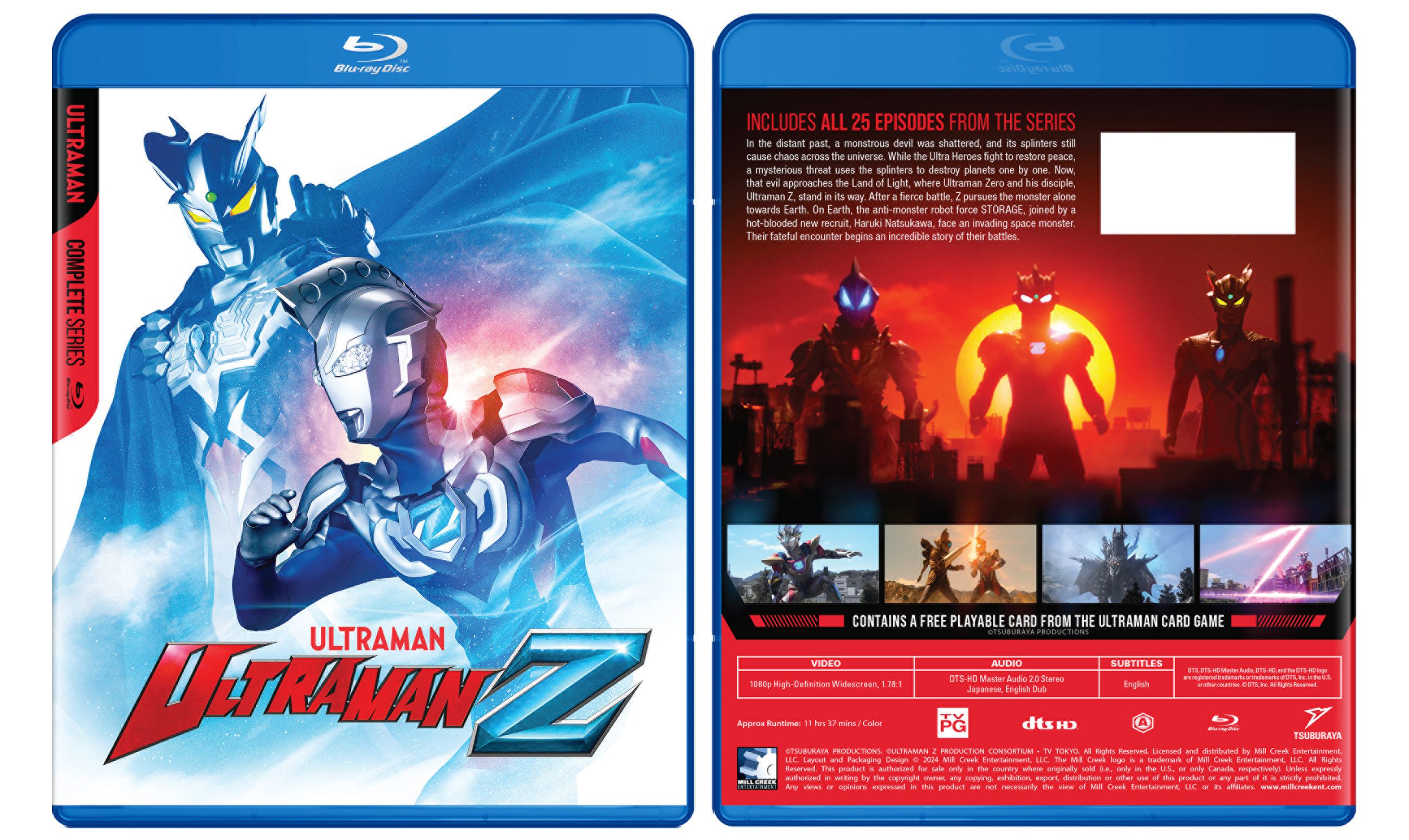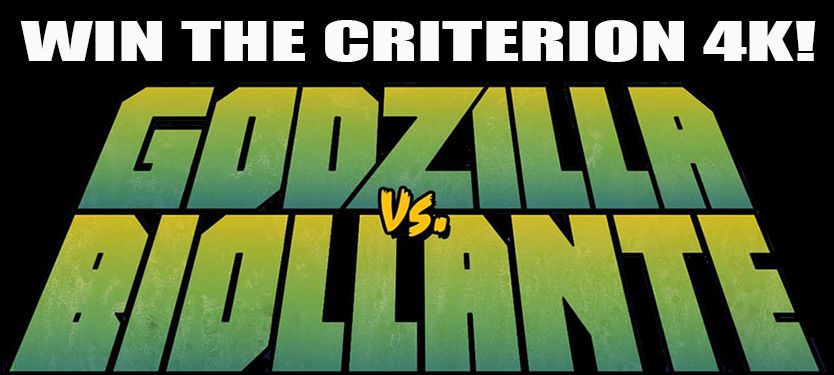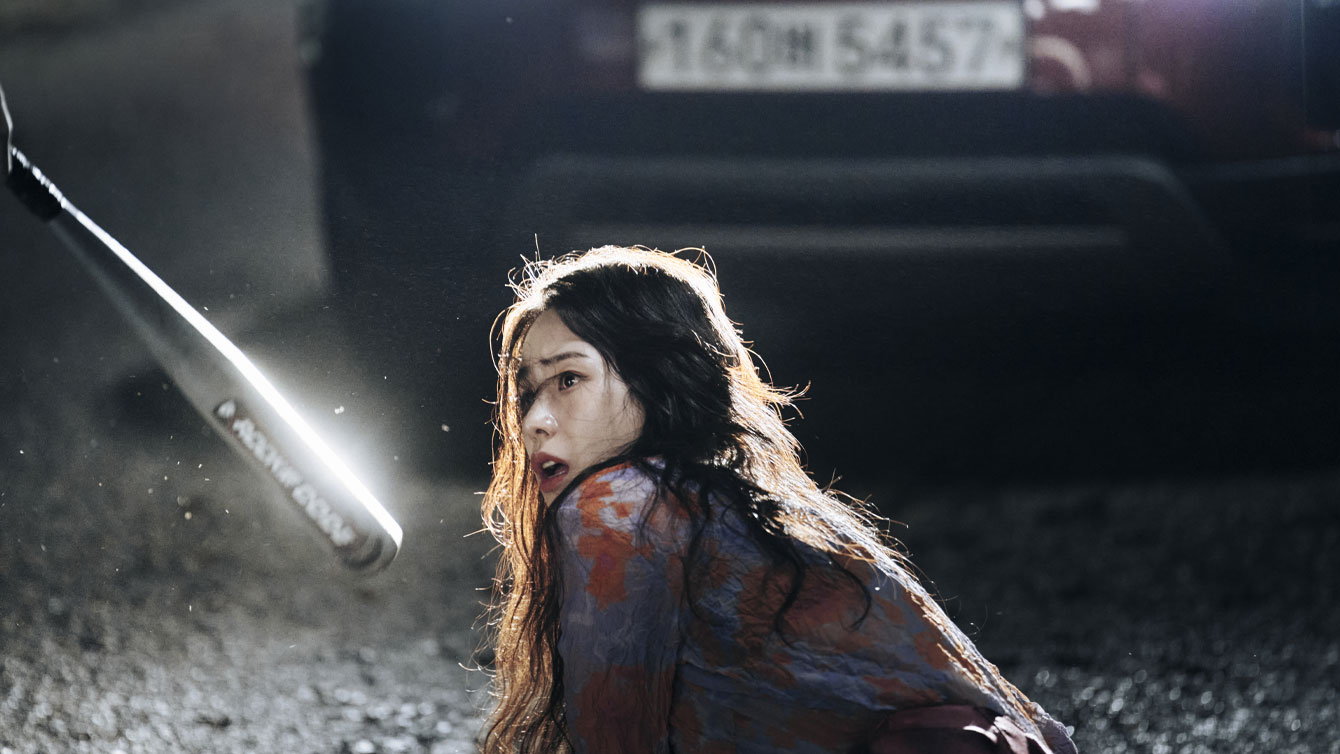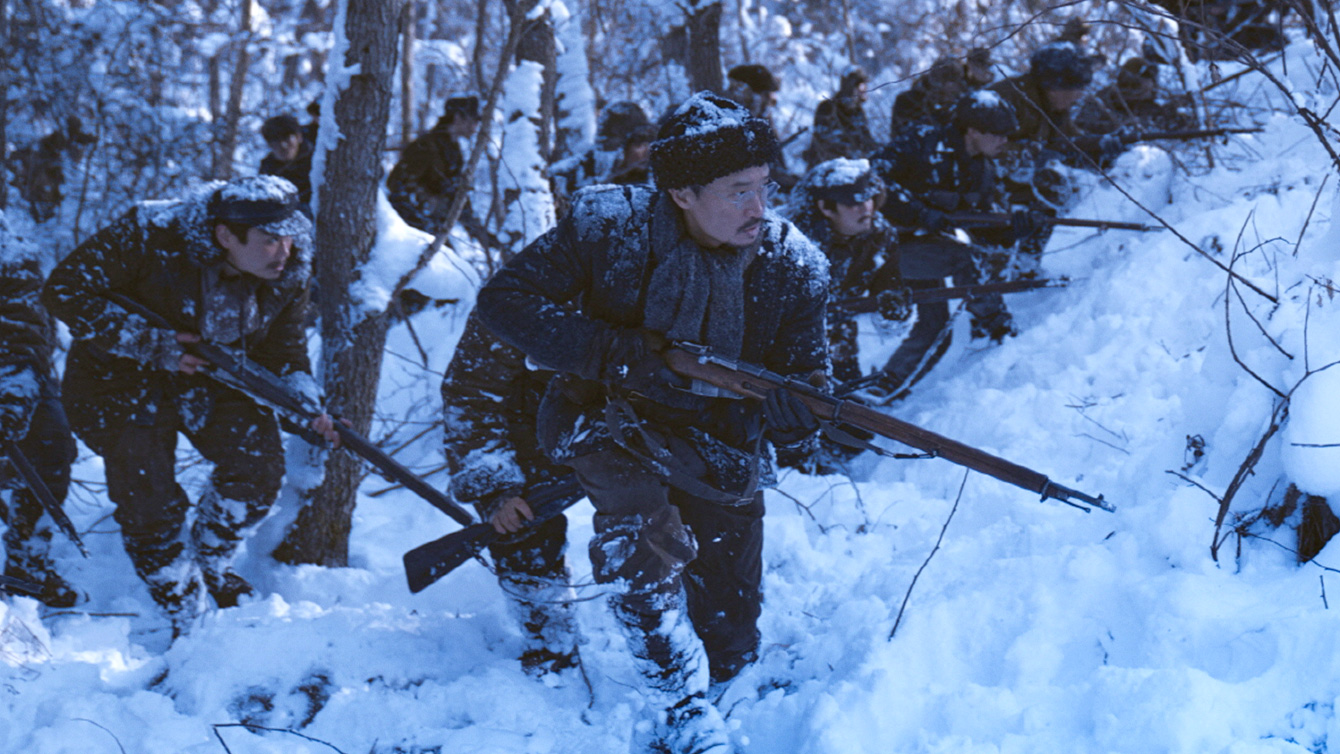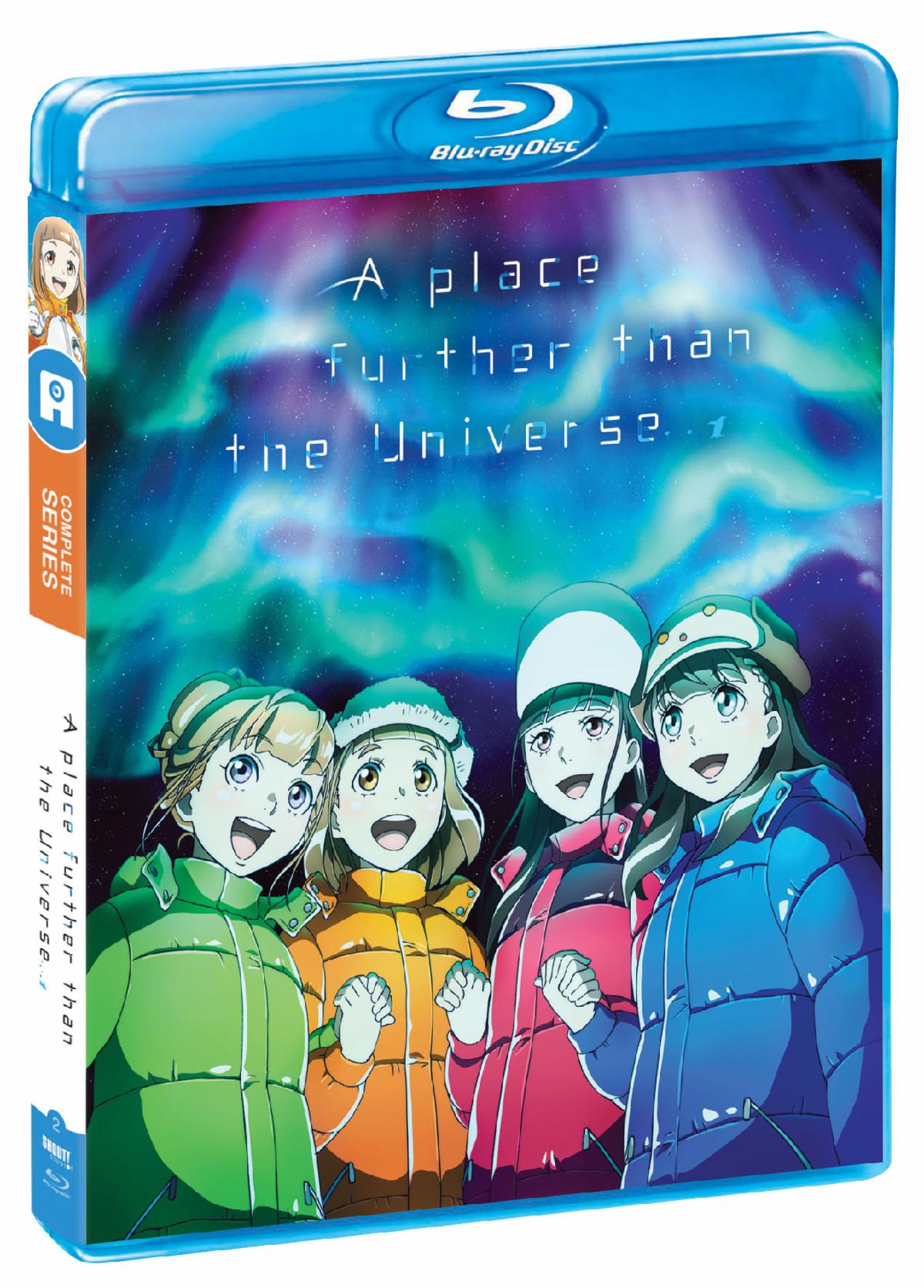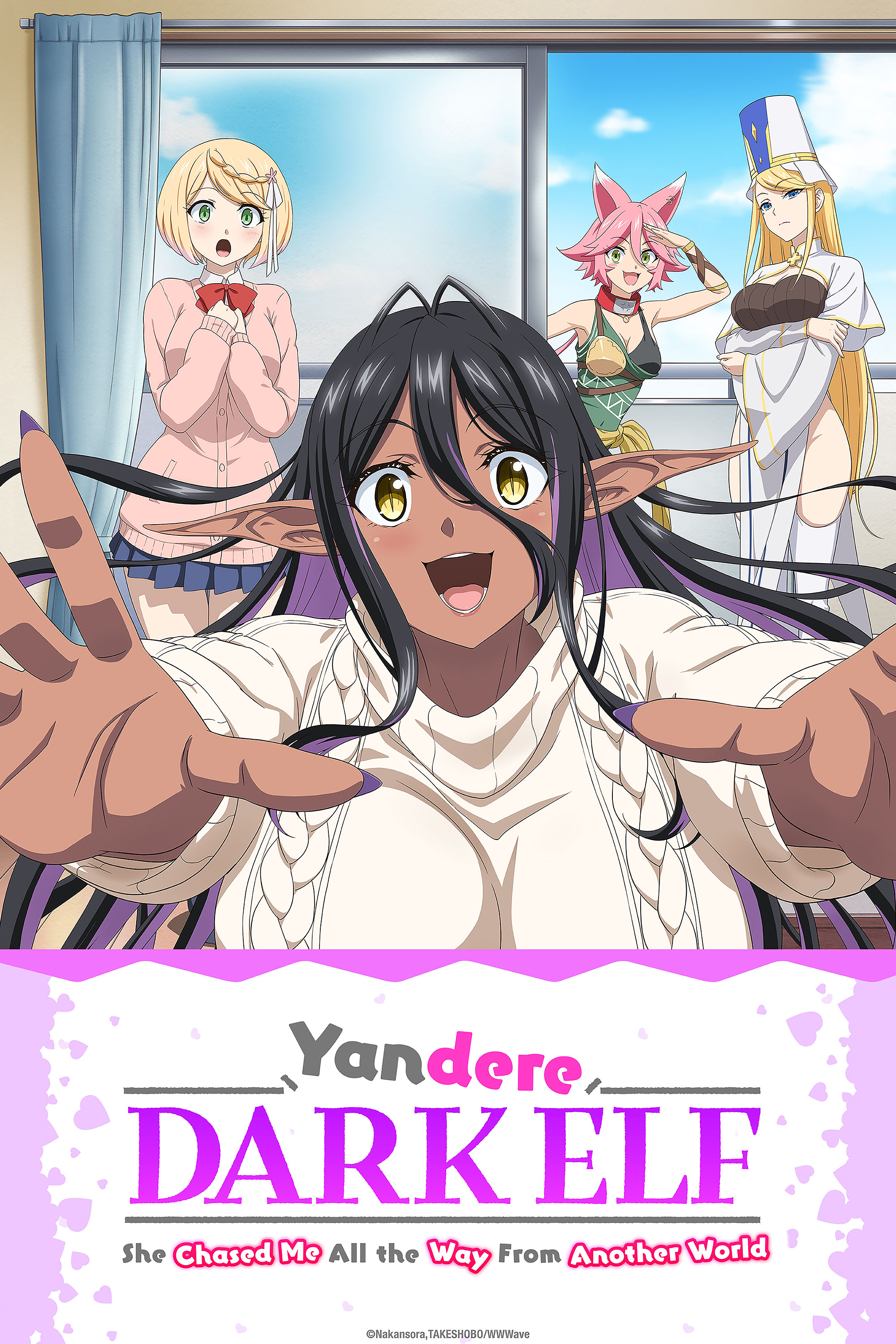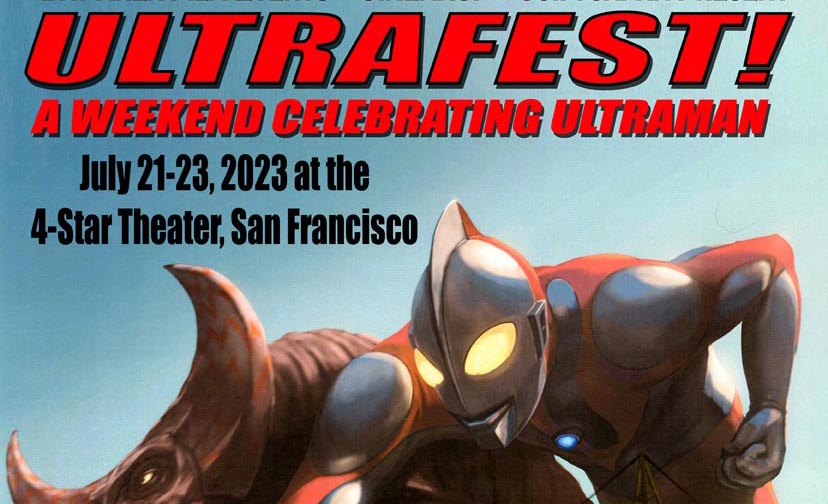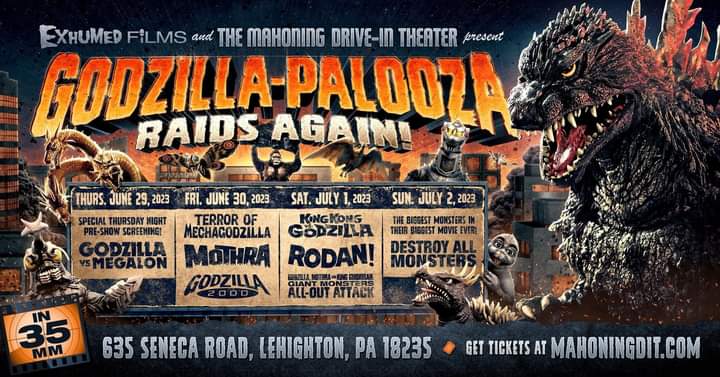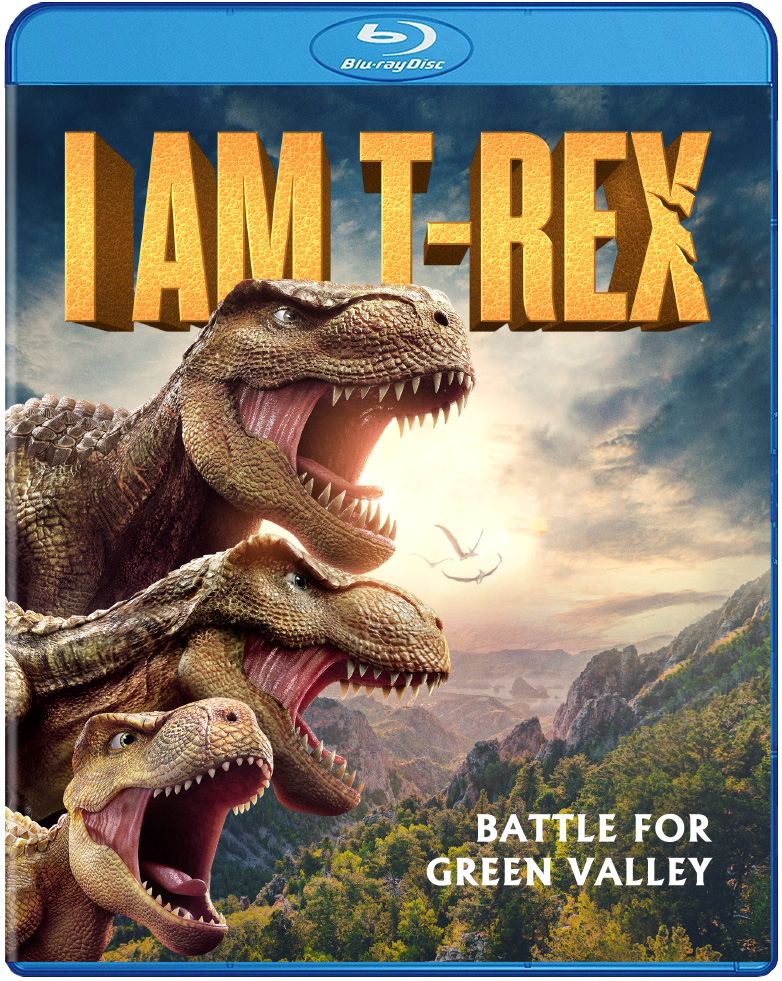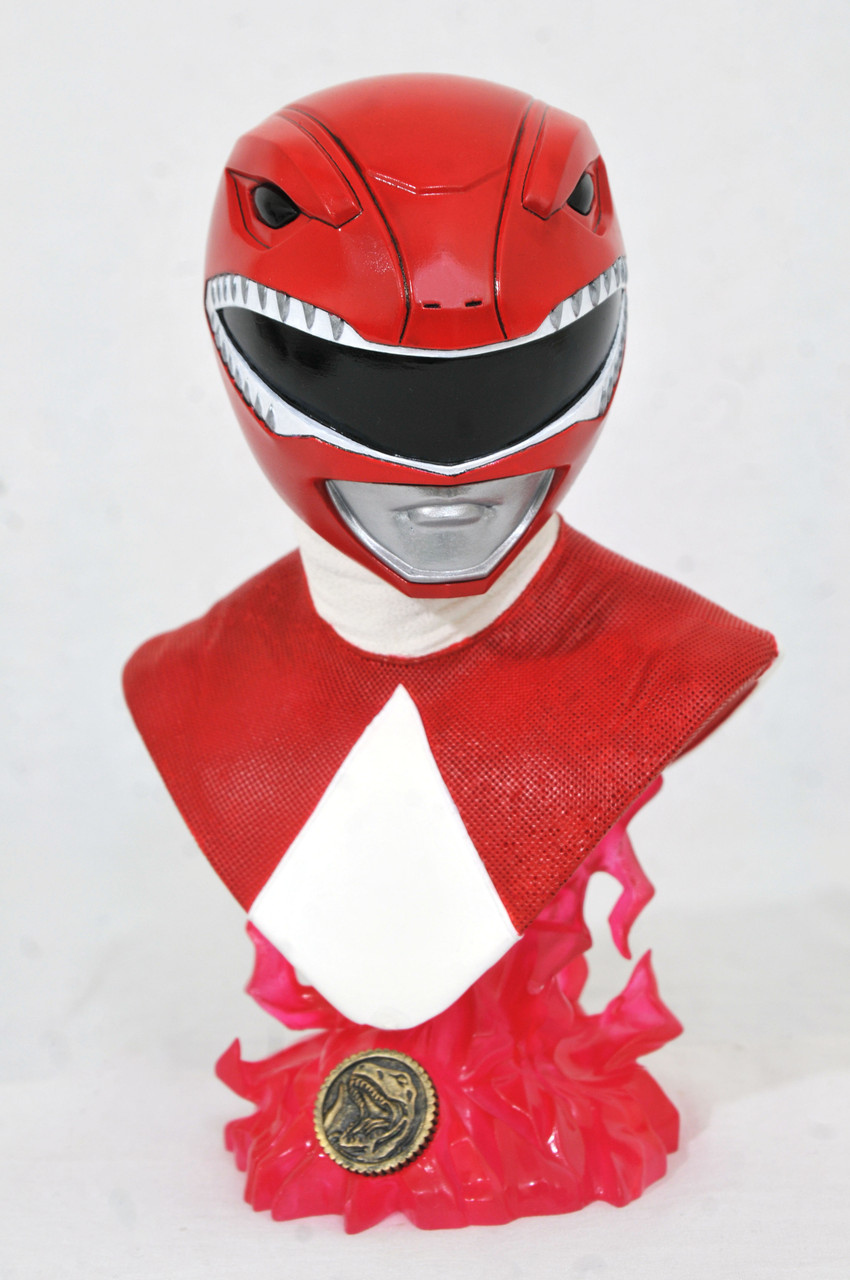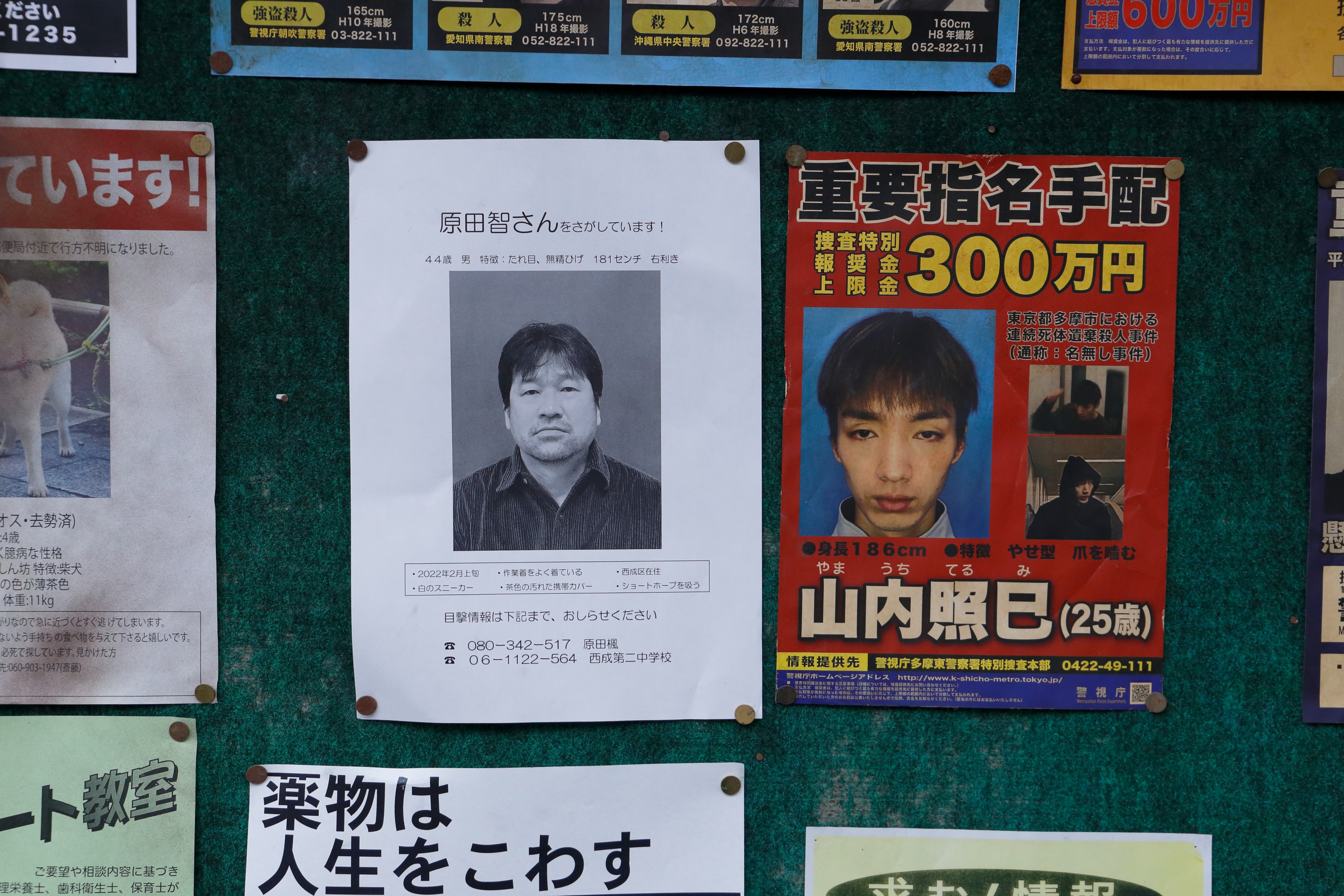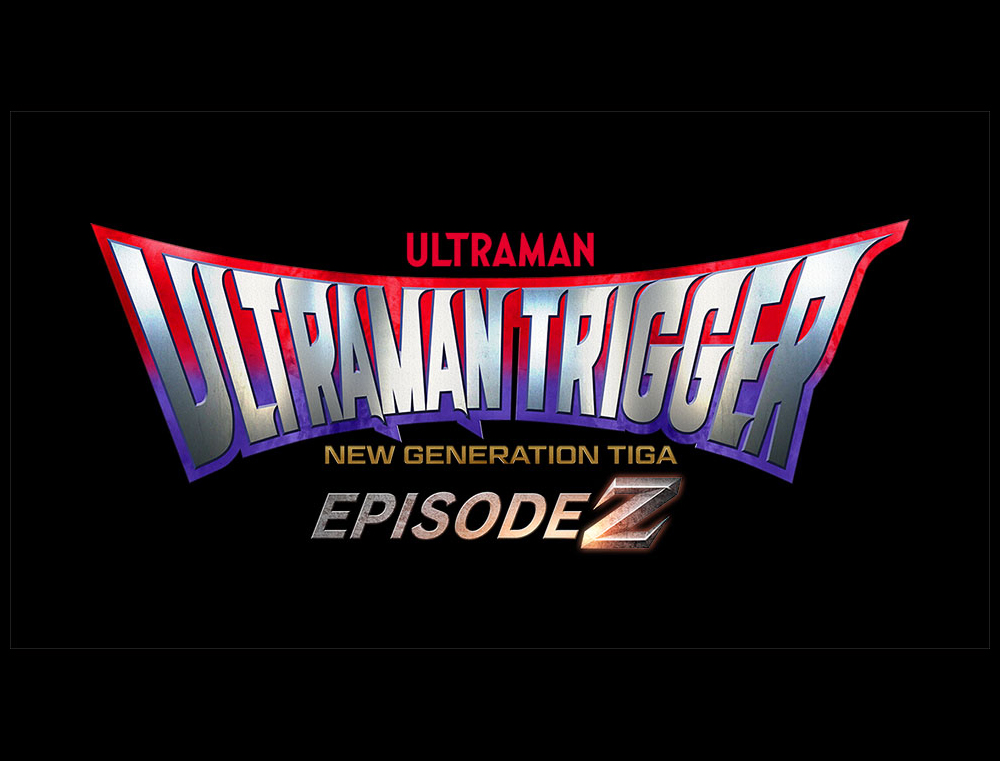 ABRAHAM LINCOLN: VAMPIRE HUNTER explores the secret life of our greatest president, and the untold story that shaped our nation. Photo courtesy of Twentieth Century Fox. © 2012 Twentieth Century Fox Film Corporation.
ABRAHAM LINCOLN: VAMPIRE HUNTER explores the secret life of our greatest president, and the untold story that shaped our nation. Photo courtesy of Twentieth Century Fox. © 2012 Twentieth Century Fox Film Corporation.Opens July 22nd Source: Twentieth Century Fox Film Corporation, Twentieth Century Fox Japan Official Site: abelincolnvampirehunter.com
SPOILER WARNING: This article contains plot details and images from an upcoming movie.
ABRAHAM LINCOLN: VAMPIRE HUNTER explores the secret life of our 16th president, and the untold story that shaped our nation. Visionary filmmakers Tim Burton and Timur Bekmambetov (director of “Wanted”) bring a fresh voice to the bloodthirsty lore of the vampire, imagining Lincoln as history`s greatest hunter of the undead. Abraham Lincoln. Vampire Hunter. The very words evoke a juxtaposition that is unexpected, if not downright bizarre. Yet it’s an idea to which the filmmakers have fully committed. Their work is a portrait of the man and leader we’ve all studied and the seminal events that defined him and our nation – interwoven with the immersive, visceral action of a vampire story. At the same time, ABRAHAM LINCOLN: VAMPIRE HUNTER presents the Great Emancipator as the country’s first superhero. Notes producer Tim Burton: “Lincoln’s entire life mirrors the classic comic book superhero mythology. It’s a duality: during the day he’s the president of the United States; at night, a vampire hunter.” That dichotomy is at the core of the Lincoln we meet in the film. “He was ordinary and extraordinary at the same time,” says director Timur Bekmambetov. Adds screenwriter Seth Grahame-Smith, who adapted his best-selling novel of the same name: “Lincoln’s life story is an archetypal superhero origin story. He’s as close to an actual superhero as this country’s ever seen. Forget about vampires. Lincoln had neither family name nor money. His mother died when he was a youngster. In fact, everybody he loved had died. With no education, and armed with just his mind, he became president and saved the nation.” These themes grabbed the attention of Burton, his fellow producer Jim Lemley, and Timur Bekmambetov. Even before Grahame-Smith had completed the novel, Burton heard the title and his mind kicked into gear. “It sounded like the kind of movie I wanted to see,” Burton claims. “It felt like it could have the crazy energy of the films of my youth, which had a lot of weird mash-ups of horror movies.” Lemley, who had produced with Burton and Bekmambetov the animated film “9,” says that Burton’s sensibilities were a perfect match for this material. “What Tim does so brilliantly is to take conventional imagery and stories and turn them on their head, and examine them from an unexpected perspective.” ABRAHAM LINCOLN: VAMPIRE HUNTER also fits squarely within Bekmambetov’s creative and aesthetic wheelhouse. The Russian filmmaker had previously helmed the box-office smash “Wanted” and before that, “Night Watch” and “Day Watch,” both offering compelling portraits of vampires in a world both familiar and fantastic. Like Burton, Bekmambetov paints on a huge canvas, presenting visually stunning imagery. It was the project’s central idea and cleverness that attracted the Russian filmmaker, claiming, “I immediately reacted to the story because it was so clean, simple and powerful.” Initially, Bekmambetov was to serve as a producer until Burton convinced him to take the reins as the director of the film. “I wanted to see Timur’s version of this story!” Burton says. “A big plus was that Timur is from another country, so he provides a different perspective on these characters and historical events.” The “vampire hunter” portion of the story offers explosive thrills, scares, and stunts, but the filmmakers never forgot that they were also presenting a portrait of a beloved figure, as well as the monumental events that shaped our nation and continue to define contemporary discourse. “Everything had to be presented in a very straightforward way,” says Grahame-Smith. “We never wink at the audience; not even once. Tim Burton really supported us and protected that vision.”
Grahame-Smith notes that his idea for his book Abraham Lincoln: Vampire Hunter came from an observation he made during a 2009 tour to promote his previous tome, Pride and Prejudice and Zombies, another unexpected connection between disparate cultural entities. The author/screenwriter recalls: “That year marked the bicentennial of Lincoln’s birth, and many of the bookstores on my promotional tour had two displays: one featured books about Lincoln’s life; the other was a vampire-themed display, including the Twilight and Sookie Stackhouse books [upon which the television show “True Blood” was based]. It led me to think about combining the two subjects.” Grahame-Smith’s vampires were polar opposites to the romantic figures captured in the pages of the books he saw on display. His creatures of the undead pay proper reverence to the classic tradition of vampires in the movies. “The vampires in our movie aren’t romantic or funny, and they certainly don’t sparkle,” he notes. “Our vampires are bloodthirsty and cunning – and most frightening of all, they’ve become a part of the fabric of everyday life, working as blacksmiths, pharmacists, and bankers.” The vampires’ principal foe is one of history’s most beloved figures, whom many consider our greatest president. This story covers 45 years in Abraham Lincoln’s life, from 1820 to 1865, and is set in Kentucky, Illinois, and Louisiana and, of course, the nation’s capital. So, who would follow in the footsteps of some of our most accomplished actors, and play the iconic leader and fearless vampire slayer? The nod went to stage actor Benjamin Walker, who coincidentally already had accrued some “presidential” experience as the lead in the play “Bloody Bloody Andrew Jackson,” which had a Broadway run in 2010. “Ben brings humanity and a mischievous quality, which felt very real, to the role,” says Tim Burton. Adds Jim Lemley: “Ben captures Lincoln’s honesty, integrity, courage and sense of purpose.” Most important to Walker was the opportunity to portray not only what made Lincoln a giant, but also a relatable human being. “What’s dangerous about playing an icon is not allowing the character to be human,” says the actor. “You must allow the character to be vulnerable or even silly. Luckily, Tim and Timur were open to making Abraham a flawed, funny and conflicted man.” “The human side is always the most important thing,” Burton concurs. “And the character has to have a sense of humor because no one could survive as a vampire hunter without it.”
Walker, a 6’3” Juilliard-trained actor certainly had the physical stature to portray the lanky Lincoln. But could the young actor, 29 at the time, convey, physically, the Civil War-era figure whose iconic, aged visage graces our history books and currency? Bekmambetov, Burton and Lemley put Walker to the test – a screen test – during which the actor donned prosthetics that aged him to 55, and delivered one of the most renowned speeches in history, the Gettysburg Address. Walker more than impressed the filmmakers. “My reaction was, ‘Oh my god, it’s Abraham Lincoln delivering the Gettysburg Address!” Lemley exclaims. Looming ahead for Walker was the imperative to drop 30 pounds to achieve the requisite Lincolnesque leanness, as well as hundreds of hours of weapons training to turn him into the ultimate hunter of the undead. Before Walker takes center stage as Abraham, we meet the character as a child. His journey begins when his mother Nancy is stricken with a disease of unknown origin – but recognizable to young Abraham as resulting from a vampire’s bite. Nancy was a woman of intelligence and heart, imparting on her son the notion that, “until everyone is free, we are all slaves.” Abraham never forgot those words, which came to define his views toward slavery. Nor would he ever forget the eternal evil responsible for his mother’s death: a vampire (and local businessman) named Jack Barts, portrayed by Marton Csokas, against whom Abraham swears revenge. But his first attack against Barts fails, and Abraham narrowly escapes with his life. He is rescued by the charismatic Henry, a high-living and refined ladies’ man. Henry, portrayed by British actor Dominic Cooper, is not interested in Abraham’s simple quest for revenge. Instead, he instructs Abraham to control his rage, become stronger, and fight for the greater good of mankind. “It’s a choice,” Henry tells Abraham, “between doing something extraordinary or being satisfied with simple vengeance.” “Henry finds the young man’s thirst for revenge to be uninteresting,” says Cooper. “But he sees Abraham of being capable of so much more, and thinks he can help him rise above a selfish quest.” Henry instructs Abraham – physically and intellectually – on the fine art of vampire hunting, for a purpose far greater than revenge. But the teacher is far from being a righteous figure. “Henry is at the top of his game at being a vampire hunter, but he’s also very flamboyant,” says Cooper. “He enjoys life to its fullest and often goes to extremes in doing so.” But certain revelations lead Abraham to question Henry’s true purpose. Is he a dedicated hunter of unspeakable evil, or an evil manipulator with dark intent?
A figure in Abraham’s life beyond reproach is his friend and bodyguard, Will, portrayed by Anthony Mackie. The character, which did not exist in the book, becomes a catalyst in Abraham’s life. Mackie says he was drawn to the project by the chance to work with Bekmambetov and Burton, both of whose films he had long admired. “I loved ‘Wanted,’ and I loved that ABRAHAM LINCOLN: VAMPIRE HUNTER is a historical movie that turns history upside-down,” says the actor. “And Tim Burton brings a magical aspect to everything he does, and this time he’s presenting a kind of underworld you’ve never seen before.” The only person closer to Abraham is his wife Mary, portrayed by Mary Elizabeth Winstead. Their first meeting at a Springfield, Illinois general store is full of sparks, potential, and sweetness, providing a stark contrast to Abraham’s dark and secret life as a vampire hunter. “The beginning of Abraham and Mary’s relationship is like a romantic comedy,” says Winstead. “They’re young and there’s a real connection between them. She’s attracted to his intelligence, integrity and humor.” Their feelings for one another escalate during a memorable picnic for two, during which Abraham confesses to Mary about his other life. But the bright sunshine, pastoral and romantic setting, Abraham’s halting delivery, and the sheer outlandishness of his claims, lead Mary to think it all a huge joke, and they both break out laughing. Of course, there’s little that’s humorous about Abraham’s deadly secrets. After his picnic “confessional,” he decides it’s best to keep Mary out of his life as a vampire hunter. “Mary and Abraham’s relationship complicates his journey because he has to decide what’s more important – his marriage or his vow to slay the undead,” says Walker. “As we all know, Abraham is an honest man, so he must ask himself, at what point can he be completely honest with Mary?” “It’s interesting because that’s something all couples deal with, in the 19th century as well as today,” Walker continues. “How do you reconcile a relationship with your life’s passion?” Only with Abraham, that “passion” is killing vampires. These secrets lead to an unspoken rift in their marriage. “Mary is not involved in this part of his life, which causes tension,” says Winstead. “She knows Abraham is hiding something from her, but she cannot ask what it is.”
There are few secrets between Abraham and his über-nemesis Adam, the chief of all vampires. The first of his kind in existence, Adam, played by Rufus Sewell, is a creature of almost limitless power. Author-screenwriter Seth Grahame-Smith, who created the character especially for the film, as its central villain, was attracted to the idea of someone who has existed for untold millennia. “I wondered what it would be like to live for hundreds of thousands of years – to have been around since the building of the pyramids,” says Grahame-Smith. “What kind of personality would emerge from that eternal existence?” Adam is a warrior, leader, politician and pragmatist. With his aristocratic bearing and Southern plantation home, Adam is like a malevolent Rhett Butler – a mix of elegance and menace. His goals, says Tim Burton, are in some ways quite relatable. “If you cast off your moral assumptions, then all Adam wants is a place where he and those like him can call home. He wants freedom for his kind, but of course that comes at a horrible cost for so many.” Adam hopes that Abraham will become a formidable ally, instead of a deadly foe. “Adam, with all his abilities, is a politician and pragmatist, much like Abraham himself,” notes Sewell. “And the wonderful thing is, he gets a chance to meet with Lincoln, warrior-to-warrior, and in a way, president-to-president, because Adam sees himself as the leader of a kind of vampire nation. Adam doesn’t use force against Lincoln, not at first, because he’d much rather have Lincoln on his side.” Abraham absolutely rejects Adam’s overtures for an alliance, and so must face the vampire’s full fury. “Adam can transition from an erudite, sophisticated and cultured ‘man’ to a creature capable of tearing your head off and sucking your lungs out through a hole in your throat,” says Sewell. Adam commands nothing less than a vampire army, and his chief lieutenant and bodyguard is a gorgeous vampire named Vadoma, played by Erin Wasson. Wasson characterizes Vadoma as “a woman of few words, and an assassin. She and Adam make a good team.” Vadoma is a fearsome soldier but her uniform is far from traditional Confederate Army issue. Instead, the sexy vamp favors a leather corset – her armor, of a kind – as well as a long, high-collared jacket. “She can also be one of the [vampire] guys,” adds the actress.
Vadoma, Adam and Abraham are the key players in one of the film’s biggest set pieces – a showdown at Adam’s plantation, where Abraham takes on dozens of vampires in a dizzying, dazzling dance of hand-to-hand (and axe-to-head) combat. Bekmambetov calls it a “waltz of death” because the action explodes in the midst of a party whose guests are…slowly dancing. The contrast between the scene’s genteel opening and its dark, edgy and violent conclusion is subversive. “The battle has incredible energy and velocity, and challenges what you think you know about big movie fight scenes,” says Lemley. “It starts off like something from ‘Gone with the Wind,’ and then people are flying around a room, vampires are jumping off ceilings, and heads are being lopped off.” The plantation melee is just one of several big action scenes, which also include a Civil War battle that sees Union soldiers overwhelmed – in shocking ways – by their Confederate foes who are more than what they seem. Additionally, there’s a stampede unlike any you’ve experienced before, where Abraham finally exacts vengeance on the vampire, Jack Barts, who killed his mother. Atop and across the backs of a thousand charging horses, Abraham runs, jumps, and fights, in a fast and furious battle against his powerful nemesis. The scene is a marvel of visual effects wizardry, overseen by visual effects supervisor Craig Lyn and Weta Digital, the house responsible for the groundbreaking VFX on “Avatar” and “Rise of the Planet of the Apes,” among other notable titles. Abraham is many years older and well into his presidency when he makes his last stand against his vampire foes in and on top of a train speeding to Gettysburg, Pennsylvania – and the Civil War’s defining battle. For this gravity-defying action sequence, the filmmakers built a full-sized and faithfully recreated locomotive and tender. Here, too, the magic of the digital world gave Bekmambetov the necessary tools to bring his unbridled imagination to life. These action/fight/stunt scenes were born not in Hollywood, nor in the production’s home in New Orleans, but thousands of miles away, in Kazakhstan, home to fight choreographer Igor Tsay and his Acting School of Fighting Kun-Do. There, Tsay and his team storyboarded the elaborate action sequences, which were pre-visualized and further developed in Moscow. In the weeks leading up to production, famed stunt coordinator Mic Rodgers (“Mr. & Mrs. Smith,” “Wanted,” “The Fast and the Furious”) and fight coordinator Don Lee (“Pirates of the Caribbean: On Stranger Tides”) worked with Walker to transform the actor into a battle-hardened, axe-wielding hunter of the undead. Walker’s grueling regimen included kicking, stretching, yoga, boxing, and endless hours training with Lincoln’s vampire-slaying weapon of choice: a specially tweaked axe.
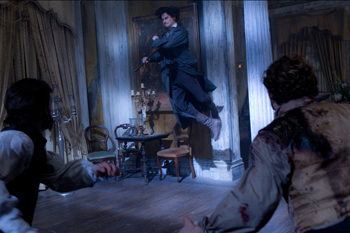 Lincoln takes to the air during an epic battle against the undead. Photo courtesy of Twentieth Century Fox. © 2012 Twentieth Century Fox Film Corporation.
Lincoln takes to the air during an epic battle against the undead. Photo courtesy of Twentieth Century Fox. © 2012 Twentieth Century Fox Film Corporation.Walker more than impressed his trainers. “Ben is a stud and one of the best actors I’ve ever worked with,” says Rodgers. “We mixed the worlds of slick Hong Kong-style martial arts with bareknuckle brawling, and Ben stepped up in every way.” The modest actor will only claim that, “Well, I hit myself in the head a lot with the axe.” The axe and many of the other props were the work of property master Guillaume DeLouche, who put together his own facility and brought to the production the last remaining craftspeople of their kind who specialize in historically correct manufacturing of axes, knives, guns and rifles. All weapons were built using methods identical to those employed in the 19th century. Abraham’s axe itself is an engineering marvel capable of transforming into a gun. It was hand-forged by a gunsmith and bladesmith, and custom made with a hickory handle. “We took everyday objects of that era and gave them a twist,” says Tim Burton. “Everyone is familiar with muskets, bayonets and axes, but nobody had thought of turning them into a single weapon.” Home to the production was the grand, resilient and historic city of New Orleans, some of whose well-preserved homes and buildings date back 150 years. The Louisiana metropolis is rich in vampire lore -- it is home to Interview with a Vampire (and its many sequels) author Anne Rice – and, says Jim Lemley, “there’s something fascinating and edgy about New Orleans.” François Audouy designed the production, grounding the film in historical reality while providing majestic and richly textured sets, including the aforementioned Southern plantation and locomotive hurtling to Gettysburg. Another key figure in bringing Lincoln’s world to life is legendary cinematographer Caleb Deschanel, ASC, a five-time Oscar®-nominee for his work on such films as “The Natural” and “The Right Stuff,” and whose many other notable credits include the luminous “The Black Stallion” and “Being There.” Using the “new” to capture the “old,” Deschanel employed digital photography and high-tech Arri Alexa camera to give the film the proper period look. “Timur and I wanted to make a movie about some real historical events, so we looked at a lot of photos from that period,” says Deschanel. “In most of those old photos everything is perfectly in place, but we decided to give the cinematography a certain roughness, with more imperfections than perfection.” Deschanel’s painstaking methods produced magical, if sometimes delayed results. Benjamin Walker remembers, “I’d be sweating in my [old-age] makeup and prosthetics, and Caleb would be worrying about an unlit candle. And I’m thinking, who cares about the candle? And then you’d watch the dailies, and go, oh my god, that candle makes the scene. I’m transported to a different world and time. It’s only happenstance that there are vampires there.” The combination of rich period atmosphere, a unique perspective on our 16th president, and the army of the undead he’s hunting, makes for a motion picture experience like no other. For the writer who gave birth to it all, Seth Grahame-Smith, the film’s release caps a journey that began with his best-selling book. A key element in capturing Lincoln’s personality was making sure his humor came through. “He could be the life of the party, and was an exciting and entertaining man,” Grahame-Smith sums up. “I think he’d love our movie.” “I always enjoy exploring something new with each film, something I haven’t seen before,” adds Jim Lemley. “Even though it’s a little bit crazy, the film stays true to the essence of the man.” More than anything, ABRAHAM LINCOLN: VAMPIRE HUNTER springs from the essence of two filmmakers – Tim Burton and Timur Bekmambetov – who are masters at looking at something in ways never before imagined.
ABOUT THE CAST
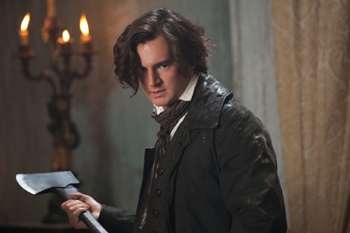 Benjamin Walker stars as Abraham Lincoln: Vampire Hunter. Photo courtesy of Twentieth Century Fox. © 2012 Twentieth Century Fox Film Corporation.
Benjamin Walker stars as Abraham Lincoln: Vampire Hunter. Photo courtesy of Twentieth Century Fox. © 2012 Twentieth Century Fox Film Corporation.BENJAMIN WALKER (Abraham Lincoln) graduated from the Juilliard Actor Training Program in 2004. He appeared in the Clint Eastwood directed “Flags of our Fathers” for DreamWorks SKG, and in the Bill Condon directed “Kinsey” for Fox Searchlight Pictures. In 2007, Benjamin performed in the Broadway revival of “Inherit the Wind,” starring Tony Award winners Christopher Plummer, Brian Dennehy and Denis O`Hare, under the direction of Doug Hughes. In 2008, Benjamin performed in Roundabout Theatre’s production of “Les Liaisons Dangereuses” opposite Laura Linney, which was nominated for six Tony awards. Benjamin played the title role in the Alex Timbers` musical, “Bloody Bloody Andrew Jackson” in the show`s world premiere at the Kirk Douglas Theater in Los Angeles, CA. After the play re-opened in New York last spring to rave reviews, the production moved to Broadway, where Benjamin returned in the starring role. He will next begin filming HBO’s “Muhammad Ali’s Greatest Fight,” as Kevin Kennedy, a Supreme Court clerk who wrote the legal briefs resulting in the guarantee of Ali’s status as a conscientious objector. DOMINIC COOPER (Henry Sturgess) was most recently seen in the independent drama, “The Devil`s Double,” which premiered at the 2011 Sundance Film Festival and was screened at the 2011 Berlin Film Festival. Directed by Lee Tamahori and written by Michael Thomas, “The Devil’s Double” is a taut action tale about the life of Latif Yahia, who was forced against his will to be the body double for Uday Hussein. Through his role, Yahia gained access to Hussein`s inner sanctum and witnessed corruption, violence, and debauchery. Dominic plays the challenging dual roles of Yahia and Hussein. Some of Cooper’s other recent projects include “Captain America: The First Avenger,” directed by Joe Johnston and also starring Chris Evans, Tommy Lee Jones, and Hugo Weaving, where Cooper portrays the eccentric inventor, Howard Stark, and “My Week with Marilyn,” directed by Simon Curtis and co-starring Michelle Williams, Kenneth Branagh, and Judi Dench, with Cooper assuming the role of Milton Greene, the celebrated photographer and business associate of Marilyn Monroe. Dominic recently starred as Ben Sargeant in Stephen Frears’ “Tamara Drewe,” also starring Gemma Arterton. Based on the graphic novel by Posy Simmonds, “Tamara Drewe” is a modern reworking of Thomas Hardy`s nineteenth century novel, “Far From the Madding Crowd.” In addition, Cooper was seen in the coming-of-age drama, “An Education.” Directed by Lone Scherfig and written by Nick Hornby, “An Education.” follows a 16 year-old girl’s self-discovery in 1960`s London as she begins a relationship with a 30 year-old playboy. The film, co-starring Carey Mulligan, Peter Sarsgaard, Alfred Molina, and Emma Thompson, screened at the 2009 Sundance, Berlin, and Toronto Film Festivals, and was nominated for Best Picture by both the Academy Awards® and BAFTA Awards.
Cooper starred in the box-office sensation “Mamma Mia!” the feature film adaptation of the beloved stage musical. With an all-star cast including Meryl Streep, Pierce Brosnan, Colin Firth, Stellan Skarsgård, Christine Baranski, Julie Walters, and Amanda Seyfried, “Mamma Mia!” set box office records worldwide and became one of the highest grossing films of all time in the UK. Dominic starred in “The Duchess,” a film based on Amanda Foreman’s biography of the scandalous 18th century English aristocrat, Georgiana, Duchess of Devonshire. Directed by Saul Dibb, the period drama also stars Keira Knightley and Ralph Fiennes. Dominic’s additional film credits include “The Escapist,” directed by Rupert Wyatt and also starring Brian Cox and Joseph Fiennes; “Brief Interviews with Hideous Men,” directed by John Krasinski; the Tom Hanks-produced “Starter for 10,” also starring James McAvoy; “Boudica”; “I’ll Be There”; Neil Jordan’s “The Gentleman Thief”; and the Hughes Brothers’ “From Hell.” Dominic received his professional training at the London Academy of Music and Dramatic Art (LAMDA). Upon completion, he landed a role in “Mother Clap’s Molly House” at the prestigious National Theatre under resident director Nicholas Hytner. Cooper then starred in the Royal Shakespeare Company’s “A Midsummer Night’s Dream,” before rejoining Hytner at the National Theatre for “His Dark Materials” and “The History Boys,” which went on to win three Olivier Awards, including Best New Play. Written by Alan Bennett, “The History Boys” later landed on Broadway, where it was the recipient of six Tony Awards, including Best Play. Dominic garnered Drama Desk and Evening Standard Award nominations for his lauded stage performance as the confident and seductive Dakin. Cooper also reprised the role in the acclaimed film adaptation of the play, where he was subsequently nominated for the Best Newcomer Award by the British Independent Film Awards and the Best Supporting Actor Award by the London Film Critics Circle. Dominic starred on stage as Hippolytus in the heralded National Theatre production of Jean Racine’s “Phèdre,” with Dame Helen Mirren in the titular role. The production, directed by Nicholas Hytner, was also presented at Epidaurus in Greece, and The Shakespeare Theatre Company in Washington D.C. In addition to his stage and film work, Dominic has also produced a number of acclaimed performances for television. He starred as Dave, the corrupt, smooth-talking mortgage salesman in the BBC Two production of “Freefall,” a timely drama focusing on the now imploding world of finance and its devastating impact on the people at each end of the scale. He also starred as the dashing and handsome Willoughby in the recent BBC production of “Sense & Sensibility.” Based on the beloved Jane Austen novel, the two-part television mini-series was directed by John Alexander and adapted by Andrew Davies. Dominic’s additional television credits include the Holocaust drama, “God on Trial,” BBC’s “Down to Earth,” “Sparkling Cyanide,” BBC’s “The Gentleman Thief,” Hallmark’s “The Remarkable Case of Davidson’s Eyes,” and Steven Spielberg’s acclaimed “Band of Brothers.” Dominic currently resides in London. ANTHONY MACKIE (Will Johnson) was classically trained at the Juilliard School of Drama. He was discovered after receiving rave reviews while playing Tupac Shakur in the Off Broadway “Up Against the Wind.” Mackie made an auspicious film debut as Eminem’s nemesis, Papa Doc, in Curtis Hanson’s “8 Mile.” His performance caught the attention of Spike Lee, who cast Mackie in “Sucker Free City” and “She Hate Me.” Mackie appeared in Clint Eastwood’s Academy Award-winning “Million Dollar Baby,” opposite Hilary Swank, Morgan Freeman and Eastwood, as well as in Jonathan Demme’s “The Manchurian Candidate,” alongside Denzel Washington and Liev Schreiber, and the comedy “The Man,” starring Samuel L. Jackson.
Mackie earned Independent Spirit Award and Gotham Independent Film Award® nominations for his performance in Rodney Evans’ “Brother to Brother,” which won the 2004 Special Dramatic Jury Prize at the Sundance Film Festival and was nominated for Best First Feature at the Independent Spirit Awards. In 2005, he appeared opposite David Strathairn, Timothy Hutton and Leelee Sobieski in “Heavens Fall,” based on the historic Scottsboro Boys’ trials, an independent feature that premiered at the 2006 SXSW Film Festival in Austin. Mackie had five features on movie screens in 2006. In addition to “We Are Marshall,” he starred in “Half Nelson,” with Ryan Gosling, adapted from director Ryan Fleck’s Sundance-winning short “Gowanus, Brooklyn”; in Preston Whitmore’s “Crossover”; in Frank E. Flowers ensemble crime drama “Haven,” opposite Orlando Bloom and Bill Paxton; and in the film adaptation of Richard Price’s “Freedomland,” starring Samuel L. Jackson. Mackie was seen in several theatrical performances both on and off Broadway. He made his Broadway debut as the stuttering nephew, Sylvester, alongside Whoopi Goldberg in August Wilson’s “Ma Rainey’s Black Bottom.” Next, Mackie was the lead in Regina King’s modern retelling of Chekov’s “The Seagull,” starred in Stephen Belber’s “McReele” for the Roundabout Theatre Company, and starred in the Pulitzer Prize winning play “A Soldier’s Play” as a character made famous by Denzel Washington 20 years prior. Most recently, Mackie was part of the production of “August Wilson’s 20th Century” at the esteemed Kennedy Center, where the cast performed staged readings of all 10 plays in August Wilson’s cycle. Mackie participated in three of the ten shows and hopes to return to the stage soon. In 2009 Mackie was seen as Sgt. JT Sanborn in Kathryn Bigelow’s “The Hurt Locker,” a film that not only earned Anthony an Independent Spirit Award nomination but also earned Academy Awards for Best Picture, Directing, Best Writing (Original Screenplay), and three other nods. That same year saw Mackie re-visit the role of Tupac Shakur in Fox Searchlight’s Notorious B.I.G. biopic “Notorious” and he also starred as Major William Bowman in the DreamWorks film “Eagle Eye.” In 2010 Mackie returned to Broadway starring in Martin McDonagh’s latest creation “A Behanding In Spokane.” He reunited with Kerry Washington in the drama “Night Catches Us.” In 2011 Mackie was seen in Universal Pictures’ “The Adjustment Bureau,” which also featured Matt Damon and Emily Blunt. Next came the Disney/DreamWorks feature “Real Steel,” which also starred Hugh Jackman. Earlier this year, Mackie starred in the feature “Man on a Ledge” with Sam Worthington and Elizabeth Banks. Mackie recently wrapped three films: “Ten Year,” in which he stars with Channing Tatum, Kate Mara, Rosario Dawson, and Justin Long; the crime drama “The Gangster Squad,” which also stars Sean Penn, Emma Stone, and Ryan Gosling; and the Michael Bay directed feature film “Pain and Gain,” also starring Mark Wahlberg and Dwayne “The Rock” Johnson. MARY ELIZABETH WINSTEAD (Mary Lincoln) began her career in performing arts at a young age in Salt Lake City, Utah. During this period, Mary’s exceptional talent in dancing and acting earned her the opportunity to study dance at the prestigious Joffrey Ballet School in New York City. Soon after, she was appearing on Broadway and singing in the International Children’s Choir. Over years of hard work, Mary’s passion for the performing arts has blossomed into a successful career in Hollywood’s competitive film and television industry. Mary stars opposite Aaron Paul (“Breaking Bad”) in the new film “Smashed,” which premiered at the 2012 Sundance Film Festival. The film follows a married couple whose bond is built on a mutual love of alcohol and whose relationship is put to the test when the wife decides to get sober. The film also stars Octavia Spencer, Nick Offerman and Megan Mullally. Last fall, Mary starred in Universal’s “The Thing,” a thriller about researchers in Antarctica who discover the existence of an alien craft. In the summer of 2010, Mary was seen starring opposite Michael Cera in the Universal action-comedy-fantasy film “Scott Pilgrim vs. the World.” The movie is based on the graphic novel by Bryan Lee O’Malley and was directed by Edgar Wright. Also starring in the film was Jason Schwartzman, Brandon Routh, Anna Kendrick and Chris Evans. Mary‘s other film credits include Quentin Tarantino’s film “Death Proof,” from the “Grindhouse” double-feature, in which she starred alongside Kurt Russell and Rosario Dawson. It was in this film that Mary got to sing “Baby It’s You.” She also starred in Emilio Estevez’s Golden Globe® nominated film “Bobby,” alongside William H. Macy, Demi Moore, Elijah Wood, Sharon Stone and Anthony Hopkins. The film also earned Mary a SAG Award™ nomination for Best Ensemble Cast. She can also be seen in “Factory Girl,” “Black Christmas,” “Live Free or Die Hard,” “Sky High,” “Final Destination 3,” and more. Mary currently resides in Los Angeles, California.
RUFUS SEWELL (Adam) will next be seen in “All Things to All Men.” He most recently starred in “Zen” for Left Bank Pictures and The BBC, Florian Henckel von Donnersmarck’s “The Tourist,” “The Pillars of the Earth,” for Starz and Channel 4, Jerry Bruckheimer’s television series “Eleventh Hour” (in which Sewell played the lead), and “John Adams” for HBO. In 2006 Sewell starred onstage as Jan in Tom Stoppard’s “Rock n` Roll,” at The Royal Court Theatre and London’s West End, for which he won Best Actor at the Evening Standard Theatre Awards 2006, London Critic’s Circle Best Actor Award 2007 and Best Actor at the 2007 Olivier Awards. He reprised this role on Broadway and received a Tony Award Nomination for Best Performance by a Leading Actor in a Play, and a Drama Desk Nomination for Outstanding Actor in a Play. Sewell first gained attention with his television debut in 1994 as Will Ladislaw in the BBC adaptation of “Middlemarch.” He garnered further acclaim in Christopher Hampton`s feature film “Carrington,” opposite Emma Thompson and Jonathan Pryce, as well as in John Schlesinger`s “Cold Comfort Farm.” In 2005 Sewell starred as Petruchio in the critically acclaimed BBC production of “The Taming of the Shrew,” for which he was nominated as Best Actor for a BAFTA Television Award. Other recent films include: Fabrice Du Weltz’s “Vinyan,” Johan Renck’s “Downloading Nancy,” Neil Burger’s “The Illusionist,” and Wes Craven’s “Paris Je T`aime.” Other films include Nancy Meyer’s “The Holiday,” Martin Campbell’s “The Legend of Zorro,” Kevin Reynold’s “Tristan + Isolde,” Brian Helgeland’s “A Knight`s Tale,” Alex Proyas` futuristic thriller “Dark City,” “Dangerous Beauty,” with Catherine McCormack, “Illuminata,” directed by and also starring John Turturro, Susan Sarandon and Christopher Walken, Miramax`s “The Very Thought of You,” with Joseph Fiennes, Paramount Pictures` “Bless The Child,” also starring Kim Basinger and Jimmy Smits, “Victory,” with Willem Dafoe and Sam Neill, Kenneth Branagh`s “Hamlet,” Channel Four Film`s “The Woodlanders,” and BBC Film`s “A Man Of No Importance.” On stage, Sewell made his West End theatrical debut in 1993 as Thomas Kratsky, the Czechoslovakian hustler in “Making It Better,” which won Sewell the London Critics Circles` Best Newcomer Award. Other notable roles include Septimus Hodge in the original production of Tom Stoppard`s “Arcadia,” at the National Theatre, Darcy in “Pride and Prejudice,” at the Royal Exchange in Manchester, as well as “As You Like It,” “The Seagull,” and “The Government Inspector,” all at the Crucible Theatre in Sheffield. Sewell made his Broadway debut in 1995, opening to rave reviews in the revival of Brian Friel`s “Translations,” opposite Brian Dennehy and Dana Delany. Other theatre credits include “Rat In The Skull,” a Royal Court Production directed by Stephen Daldry, “Macbeth,” on London`s West End, and John Osborne`s “Luther,” at the Royal National Theatre. Sewell studied at London`s Central School of Drama before making his film debut in Don Boyd`s “Twenty-One.” MARTON CSOKAS (Jack Barts) was born in Invercargill, Aotearoa, New Zealand. He is a citizen of the European Union, Hungary, and is a permanent resident of the United States. His academic training began at Canterbury University, Christchurch, New Zealand, where he commenced a Bachelor of Arts degree, majoring in Art History, and then transferred to Te Kura Toi Whakaari o Aotearoa/ The New Zealand Drama School, graduating in December 1989. Csokas’ first role was in “Te Whanau a Tuanui Jones” by Apairana Taylor at the Taki Rua Theatre in Wellington New Zealand, (1990). He has since had an eclectic career of theatre, television and film. His first film role was in the Peter Jackson produced feature, “Jack Brown Genius.” He has since worked with the likes of Ridley Scott in “Kingdom of Heaven,” Paul Greengrass in “The Bourne Supremacy,” and Peter Jackson, again, in “The Lord of the Rings Trilogy.” Csokas’ feature work includes “XXX,” “Aeon Flux,” and “The Great Raid.” His independent film credits include “Rain,” which featured in Cannes Director`s Fortnight 2001, “Evilenko,” and “Asylum.” His stage highlights have been the Tom Stoppard penned, “Arcadia,” as Septimus; in “Julius Ceasar” as Brutus, and most recently in the Lope de Vega play, “Peribanez Y El Comendador De Ocana,” and in “Whose Afraid of Virginia Wolf.” Csokas’ television work has been recognized with an Emmy® nomination for ABC`s “The Three Stooges,” and “G.P.” He did one year of “Shortland St.” in New Zealand, nine episodes of “Xena,” and numerous episodes of assorted television dramas in both New Zealand and Australia, including the acclaimed miniseries “The Farm.” Csokas has inherited some of his talents from his father, who is a trained opera singer, and at one time, a trapeze artist in the Hungarian Circus. His mother is a nurse who resides in Tasmania.
ERIN WASSON (Vadoma) is a model, designer, entrepreneur, and actress. A classic beauty hailing from Texas, Wasson is one of modeling’s blue chip faces. Her prolific career has had countless highlights: she has graced the covers of innumerable magazines, including the French, German, Spanish and Australian editions of Vogue, shot with renowned photographers such as Steven Meisel, Mario Testino, Patrick Demarchelier and Ellen von Unwerth, and walked runways for every important European fashion house (Chanel, Gucci, Lanvin and Balenciaga, to name a few). Since 2002, Wasson has been an international face of Maybelline, and she has appeared in campaigns for H&M, Victoria’s Secret and The Gap, among many other high-profile brands. But Wasson transcends the job title “model,” or even “supermodel.” Her low-key and free-spirited sense of style has inspired many and Wasson served as muse, and then stylist, for CFDA Award winning designer Alexander Wang. In 2008, Wasson made the natural leap to designer, kicking off a three-season apparel collaboration with storied skate-and-surf brand RVCA and launching her own line of jewelry, Low Luv, which is currently sold at more than 200 stores worldwide. This year, she returned to the studio to design a capsule collection for French brand Zadig & Voltaire, which launched last fall. Wasson’s remarkable charisma makes her a natural for the big screen, as well. She has appeared alongside Justin Timberlake in a series of short films for the William Rast brand and made a cameo appearance in Sofia Coppola’s “Somewhere.” Wasson spends much of her free time traveling and working in support of animal rescue and serves on the advisory board of Saving America’s Mustangs.
ABOUT THE FILMMAKERS
TIMUR BEKMAMBETOV (Director, Producer) was born on June 25, 1961 in the city of Guryev, in the former Kazakh Soviet Socialist Republic. At the age of 19, he moved to Tashkent, in the former Uzbek Soviet Socialist Republic, where in 1987 he graduated from the A.N. Ostrovsky Theatrical and Artistic Institute with a degree in theater and cinema set designing.
Between 1992 and 1997, Bekmambetov was one of the directors of Bank Imperial’s popular World History commercials. In 1994 he founded Bazelevs Group, an advertising and film production, distribution and marketing company. Bekmambetov`s first feature, “Peshavar Vals” (1995), aka “Escape from Afghanistan,” was a violent and realistic look at the war between Russia and Afghanistan. The film was dubbed in English and released directly-to-video by Roger Corman in 2002. Bekmambetov next produced and directed an eight-part miniseries for television entitled “Our ‘90s.” He then returned to directing features, with the Roger Corman-produced “The Arena” (2002), a remake of the 1974 film of the same name. In 2002, Bekmambetov directed and co-produced (with Bahyt Kilibayev) the film “GAZ-Russian Cars.” In 2004, Bekmambetov wrote and directed “Night Watch” (2004), a Russian fantasy film based on the book by Sergey Lukyanenko. The picture became Russia’s then highest-grossing release ever, making US$16 .7 million in Russia alone, more money than “The Lord of the Rings: The Fellowship of the Ring.” Bekmambetov then wrote and directed the sequel, “Day Watch” (2002). The two films attracted the attention of Fox Searchlight Pictures, which paid $4 million to acquire worldwide distribution rights (excluding Russia and the Baltic States). Bekmambetov followed up “Day Watch,” with the smash hit “The Irony of Fate-2” (2007). This sequel to a famed Soviet film is one of the most successful in Russian history, second only to “Avatar” for total box office receipts. Bekmambetov`s Hollywood directorial debut, “Wanted” (2008), an action blockbuster about a secret society of assassins, was based on a comic-book miniseries of the same name written by Mark Millar. Bekmambetov has also produced a number of films in the U.S. and Russia, including “9” (2009), the story of a rag doll in a post-apocalyptic world, directed by Shane Acker and produced by Bekmambetov, Tim Burton and Jim Lemley. Bekmambetov produced the Russian language action movie “Black Lighting” (2009), with Universal Pictures. In 2010, Bekmambetov produced and was one of the directors of “Yolki,” a.k.a. “The Six Degrees to Celebration,” which became the second highest grossing Russian film. In February 2011, Bazelevs released the Bekmambetov-produced “Vykryutas” (a.k.a. “Lucky Trouble”) starring Milla Jovovich and Konstantin Khabensky. Last year, Bekmambetov produced “Apollo 18,” a found-footage science fiction thriller, and “The Darkest Hour,” a science fiction film set in Moscow, produced by New Regency. Bekmambetov received the International Filmmaker of the Year Award at CinemaCon, the official convention of the National Association of Theater Owners, held April 23-26 at Caesars Palace in Las Vegas. SETH GRAHAME-SMITH (Screenwriter, Executive Producer, Author) is well known as the author of the New York Times best-selling novels Pride and Prejudice and Zombies and Abraham Lincoln: Vampire Hunter. Pride and Prejudice and Zombies is also being made into a feature film, which Grahame-Smith is scripting. This year, he co-wrote the screenplay for director Tim Burton’s “Dark Shadows,” which brings the cult classic series to the big screen, featuring an all-star cast, led by Johnny Depp, Michelle Pfeiffer and Helena Bonham Carter.
Grahame-Smith most recently published Unholy Night, a thrilling adventure surrounding the three wise men of the nativity, which he plans to adapt for the screen. Grahame-Smith and David Katzenberg formed a production company KatzSmith, which is currently developing a diverse slate of new projects for film and television. They co-created, wrote and executive produced “The Hard Times of RJ Berger,” a coming-of-age scripted television comedy for MTV. Grahame-Smith and Katzenberg met while working in Digital Media at CBS. They were both independently hired to write and produce on “Clark and Michael,” starring Michael Cera and Clark Duke and have been collaborating ever since. TIM BURTON (Producer), widely regarded as one of the cinema’s most imaginative filmmakers, has enjoyed great success in both the live-action and animation arenas. This year, Burton directed “Dark Shadows,” which brings the cult classic series to the big screen, featuring an all-star cast, led by Johnny Depp, Michelle Pfeiffer and Helena Bonham Carter. In 2010, he directed “Alice in Wonderland,” an epic fantasy based on the classic story by Lewis Carroll, and starring Johnny Depp, Helena Bonham Carter, Anne Hathaway, and Mia Wasikowska in the title role. The film earned more than a billion dollars at the worldwide box office, making it the second-highest-grossing release of 2010. “Alice in Wonderland” also received a Golden Globe nomination for Best Picture – Musical or Comedy, and won two Academy Awards, for Best Art Direction and Best Costume Design. Burton was previously honored with an Academy Award nomination for Best Animated Feature for the 2005 stop-motion film “Corpse Bride,” which he directed and produced. He earlier received BAFTA Award and Critics’ Choice Award nominations for Best Director for the acclaimed fantasy drama “Big Fish.” More recently, Burton won a National Board of Review Award and garnered Golden Globe and Critics’ Choice Award nominations for his directing work on “Sweeney Todd: The Demon Barber of Fleet Street,” which also won the Golden Globe for Best Film – Musical or Comedy. Depp earned an Oscar nomination for his performance in the title role of Burton’s 2007 film adaptation of the Stephen Sondheim musical thriller, also starring Bonham Carter and Alan Rickman. Currently, Burton is completing work on the animated film “Frankenweenie,” slated to open in October 2012. Burton wrote and produced and is directing the feature, based on a 1984 animated short of the same name that he created early in his career. Upcoming, he is also a producer on “Big Eyes,” a drama about painter Margaret Keene, starring Reese Witherspoon and Ryan Reynolds. Burton began his film career in animation, and, in 1982, directed the stop-motion animated short “Vincent,” narrated by Vincent Price, which was an award winner on the film festival circuit. He made his feature film directorial debut in 1985 with the hit comedy “Pee-wee’s Big Adventure.” In 1988, Burton helmed the inventive comedy hit “Beetlejuice,” starring Michael Keaton as the title character. He then reteamed with Keaton on the action blockbusters “Batman,” which became the top-grossing film of 1989 and also starred Jack Nicholson as the Joker, and “Batman Returns,” also starring Michelle Pfeiffer and Danny DeVito.
In 1990, Burton directed, co-wrote and produced the romantic fantasy “Edward Scissorhands,” which was acclaimed by both critics and audiences. The film also marked the start of his successful cinematic partnership with Johnny Depp, who delivered a poignant performance in the title role. Their subsequent collaborations include the Burton-directed films “Ed Wood,” also starring Martin Landau in an Oscar-winning portrayal of Bela Lugosi; “Sleepy Hollow,” adapted from the classic tale by Washington Irving; and the 2005 worldwide smash “Charlie and the Chocolate Factory,” which was based on Roald Dahl’s beloved book and grossed more than $470 million worldwide. Burton’s additional directing credits include the all-star sci-fi comedy “Mars Attacks!” which he also produced, and the 2001 remake of “Planet of the Apes,” which marked his first collaboration with producer Richard Zanuck. Burton also conceived and produced the stop-motion animated feature “The Nightmare Before Christmas,” which remains an enduring holiday favorite. In addition, he has produced such films as “Cabin Boy,” “Batman Forever,” and the animated features “James and the Giant Peach” and “9.” In 2010, the filmmaker released The Art of Tim Burton, a 430-page book comprising more than 40 years of his personal and project artwork. In November of that year, the Museum of Modern Art (MoMA) opened an extensive exhibit of his work, which went on to tour in Melbourne, Australia, and Toronto, Canada. It opened at the Los Angeles County Museum of Art (LACMA) in May 2011 and continues its tour in Paris, France this year. JIM LEMLEY (Producer) previously collaborated with Timur Bekmambetov as a producer on the action-thriller “Wanted,” which grossed $341 million worldwide. The film stared James McAvoy, Morgan Freeman, and Angelina Jolie; a sequel is currently in development. Prior to that, Lemley and Bekmambetov had worked together as producers, alongside producer Tim Burton, on the animated feature “9.” Lemley is developing several features on which he will reteam with Bekmambetov, including “Moby Dick,” based on Herman Melville’s classic novel, for Universal Pictures. Lemley executive produced “The Diving Bell and the Butterfly.” Based on the memoir by Jean-Dominique Bauby, the movie won two Golden Globe Awards including Best Foreign Language Film, and was nominated for four Academy Awards including Best Director (Julian Schnabel). Lemley began his career at Icon Productions, working on such features as “Maverick” (directed by Richard Donner), “Immortal Beloved” and “Anna Karenina” (both directed by Bernard Rose), “Payback,” (directed by Brian Helgeland), “187” (directed by Kevin Reynolds), and the Academy Award winning epic “Braveheart,” directed by Icon founder Mel Gibson. Lemley capped his decade-long stint at Icon as executive producer of “We Were Soldiers” (directed by Randall Wallace). Lemley’s debut independent production was the medieval romance “Tristan+Isolde,” which he executive produced with Ridley Scott and Tony Scott, directed by Kevin Reynolds. Lemley partnered with Bonnie Curtis to executive produce “Red Eye,” the hit thriller directed by Wes Craven, starring Rachel McAdams and Cillian Murphy. SIMON KINBERG (Executive Producer) graduated from Brown University, Phi Beta Kappa, Magna Cum Laude. He received an MFA from Columbia University Film School, where he won the school’s highest screenwriting award, the Zaki Gordon Fellowship.
While still in film school, he sold an original pitch to Warner Bros., and went on to write scripts for Disney, Sony, and DreamWorks, working with the likes of Steven Spielberg, Jonathan Mostow, Stephen Sommers, and McG. His final thesis project for film school was the original script “Mr. & Mrs. Smith.” The film, directed by Doug Liman, was released in 2005, starring Brad Pitt and Angelina Jolie, and went on to become a blockbuster. It also garnered an MTV Movie Award™, and a nomination for a People’s Choice Awards. In 2005, Kinberg was named by Premiere Magazine as New Power Screenwriter of the Year, and given Movieline Magazine’s Breakthrough Award for screenwriting. In 2006, he co-wrote “X-Men: The Last Stand,” which opened on Memorial Day to box office records, and became the most successful film in the franchise. In 2008, Kinberg wrote and produced Doug Liman’s film “Jumper” for New Regency and 20th Century Fox. In 2009, he wrote the film “Sherlock Holmes” starring Robert Downey Jr. and Jude Law, directed by Guy Ritchie. The film set the box office record for the biggest Christmas opening in history, received a Golden Globe for Best Actor, and was nominated for two Academy Awards. Kinberg co-wrote an original script for JJ Abrams at Paramount. In addition, he produced “X-Men: First Class” directed by Matthew Vaughn, Neill Blomkamp’s “Elysium,” Fox’s “This Means War,” a comedy-thriller starring Reese Witherspoon, Chris Pine and Tom Hardy, as well as the new “Cinderella,” at Disney. For television, Kinberg has a deal with Jerry Bruckheimer and Warner Bros. Television. His production company, Genre Films, has a first-look deal with 20th Century Fox. MICHELE WOLKOFF (Executive Producer) is the president of the Moscow-based Bazelevs Productions, of which Timur Bekmambetov is the principal. Among the company’s many credits are the recent thrillers “Apollo 18” and “The Darkest Hour,” as well as “Wanted” and “Night Watch.” JOHN J. KELLY (Executive Producer) was an executive producer and unit production manager on Fox Searchlight Pictures’ “127 Hours” and on the critically acclaimed dramas “Warrior” and “Into the Wild.” His many other film credits include “Gentlemen Broncos” and “One Last Ride.” CALEB DESCHANEL, ASC (Director of Photography) is a five-time Academy Award nominee, for his work on “The Passion of the Christ,” “Fly Away Home,” “The Natural,” “The Right Stuff,” and “The Patriot.” The latter also earned him an American Society of Cinematographers Award for Outstanding Achievement for cinematography. Deschanel’s photography for “The Black Stallion” stunned audiences with its beauty and brought him a BAFTA nomination. In addition he received the National Society of Film Critics Award for cinematography in 1979 for his work on both “The Black Stallion,” and “Being There.” Deschanel’s other credits include “Anna and the King,” “The Hunted,” “Message in a Bottle,” “Hope Floats,” “More American Graffiti,” “Let’s Spend the Night Together,” “The Slugger’s Wife,” “It Could Happen to You,” “Killshot,” and “The Spiderwick Chronicles.” He recently photographed William Friedkin’s “Killer Joe,” Jim Sheridan’s “Dream House,” and Nick Cassavetes’ “My Sister’s Keeper.” Deschanel’s credits as a director include “The Escape Artist,” “Crusoe,” and a number of short films. His short film “Trains” won the Silver Bear Award at the Berlin Film Festival, and the short “Valley Forge” has been shown around the world by the United States Information Society. Deschanel has directed episodes of the television series “Twin Peaks,” “Law & Order: Trial By Jury,” and “Bones.” Deschanel graduated from Johns Hopkins University and studied at the University of Southern California Film School and the American Film Institute before interning with cinematographer Gordon Willis. Deschanel began his career in commercials, short subjects, and documentaries. FRANÇOIS AUDOUY (Production Designer) specializes in building worlds that are immersive and believable environments through the blending of both traditional and digital design technique. For over 15 years, he has worked in motion picture art departments, collaborating with many of the top directors and production designers working in film. Audouy’s art direction credits include “Green Lantern,” “Watchmen,” “Lions for Lambs,” “Transformers,” and “Charlie and the Chocolate Factory.” As an illustrator, graphic designer and assistant art director, he contributed to such productions as “Avatar,” the “Spider-Man” trilogy, “Zodiac,” “The Terminal,” and the first two “Men in Black” films. François has been an early adopter of progressive film design tools, and was one of the first all-digital concept illustrators in the industry. He has evolved his experience with both digital and traditional artists to be able to assemble highly collaborative art departments that are super productive and highly efficient.
He is a veteran and advocate of immersive design and is a founding member of the 5D Conference; a groundbreaking narrative media design conference. In 2008, François was named in The Hollywood Reporter’s fourth annual “Crafts: The Next Generation” issue as one of “the brightest and most talented 35-and-under artisans working in the industry today.” He is currently designing the motion picture “The Wolverine” for director James Mangold. WILLIAM HOY, A.C.E. (Editor) edited Zack Snyder’s worldwide hit “300,” his acclaimed comic book adaptation “Watchmen,” and the thriller “Sucker Punch,” having first worked with the director as an additional editor on “Dawn of the Dead.” Hoy has also edited such films as Tim Story’s “Fantastic Four” and its sequel “Fantastic 4: Rise of the Silver Surfer”; Alex Proyas’ “I, Robot”; F. Gary Gray’s “A Man Apart”; and Randall Wallace’s “We Were Soldiers” and “The Man in the Iron Mask.” He has collaborated with filmmaker Phillip Noyce on three films: “The Bone Collector,” “Sliver” and “Patriot Games.” Hoy’s additional credits include editing work on “Se7en,” “Outbreak,” “Star Trek VI: The Undiscovered Country” and “Dances with Wolves.” For television, he has edited “Houdini” for TNT, “Shattered Mind,” and the series “Star Trek: The Next Generation.” CARLO POGGIOLI (Costume Designer) studied stage and costume design at the Istituto D`Arte and The Accademia di Belle Arti in Naples. After completing his studies, Poggioli worked in Rome as assistant designer for some of the most important Italian costume designers such as Gabriella Pescucci, Piero Tosi, and Maurizio Millenotti. His film credits include J. J. Annaud’s “The Name of the Rose,” Terry Gilliam’s “The Adventures of the Baron Munchausen,” Federico Fellini’s “The Voice of the Moon,” Martin Scorsese’s “The Age Of Innocence,” and Franco Zeffirelli’s “Sparrow.” Poggioli worked also alongside famed costume designer Ann Roth as assistant for “The English Patient” and as associate designer for “The Talented Mr. Ripley.” In opera, Poggioli has worked with Liliana Cavani, Mauro Bolognini, and Franco Zeffirelli, and designed the costumes for productions directed by Ruggero Cappuccio and orchestra directed by Riccardo Muti, for such works as “Falstaff” (Teatro alla Scala Milano) “Nina ossia la pazza per amore” (Teatro alla Scala Milano) and “Il ritorno di Don Calandrino” at the Salzburg Opera Theatre. Poggioli has a long artistic partnership with Marco Gandini and designed the costumes for Rossini`s “La gazzetta” at the Garsington Opera, Mascagni`s “L`amico Fritz “ and Puccini’s “Gianni Schicchi” at the Arena Di Verona, Marco Tutino`s “La Lupa” at the Teatro Massimo di Palermo. Poggioli worked on the Luca Ronconi-directged plays, O`Neill`s “Strange Interlude” and Giradoux`s “La Folle de Chaillot.”
As a costume designer for features and television films, he has designed the costumes for “Marquise” directed by Vera Belmont, “Jason and the Argonauts,” “The Mists of Avalon” (Emmy nomination for best costume), “Cold Mountain,” directed by Anthony Minghella (BAFTA nomination for best costume), “Van Helsing” (Saturn Award nomination) directed by Steven Sommers, “Doom,” directed by Andrzej Bartkowiak, “The Fine Art Of Love: Mine-Haha,” directed by John Irvin, “The Inquiry,” directed by Giulio Base, and “The Brothers Grimm,” directed by Terry Gilliam. Poggioli’s most recent film work includes “Silk,” which won the Canadian Academy Award, Prix Genie Award, for best costumes and the Jutra Award, “Lecture 21,” by Alessandro Baricco (Silver Ribbon nominated), “Miracle at St. Anna,” directed by Spike Lee, and “Ninja Assassin,” directed by James McTeigue. His latest movies are “Season of the Witch,” starring Nicolas Cage and Ron Perlman, directed by Dominic Sena, and the recently released “The Raven,” directed by James McTeigue. VARYA AVDYUSHKO (Costume Designer) was born in Russia. ABRAHAM LINCOLN: VAMPIRE HUNTER” marks her fourth collaboration with director Timur Bekmambetov. They previously worked together on the box office hit “Wanted,” which starred Angelina Jolie and James McAvoy, and the cult classics “Day Watch,” and “Night Watch.” Last year, she designed the costumes for director Chris Gorak’s “The Darkest Hour,” starring Emile Hirsch, Olivia Thirlby and Max Minghella. HENRY JACKMAN (Music) has had a successful and eclectic musical career. He studied classical music in the U.K. at St. Paul`s Cathedral Choir School, Eton College and Oxford University, then switched gears, producing chart-topping dance remixes, electronica and club music. Jackman was the composer on “X-Men: First Class,” directed by Matthew Vaughn, for whom Jackman wrote the score on “Kick-Ass.” Jackman`s other film scores include “Winnie the Pooh,” “Puss in Boots,” “Gulliver`s Travels,” “Monsters vs. Aliens” and “Henry IV.” Prior to his film music career, Jackman spent several years in the record industry, collaborating with producer Trevor Horn on the Art of Noise album “The Seduction of Claude Debussy.” Jackman also worked with Seal, co-writing and producing “This Could Be Heaven” for the motion picture “The Family Man.” This gained the attention of prominent film composers Hans Zimmer and John Powell, and Jackman received additional music credits on their scores to: “The Dark Knight,” “The Da Vinci Code,” “Kung Fu Panda,” “Pirates of the Caribbean: Dead Man`s Chest,” “Pirates of the Caribbean: At World`s End,” “Hancock,” “It`s Complicated,” “The Holiday,” and “The Simpsons Movie.” Jackman`s ability to approach such a wide range of film genres with a fresh point of view is due to his unique advantage of coming from both the classical and record industry worlds.


